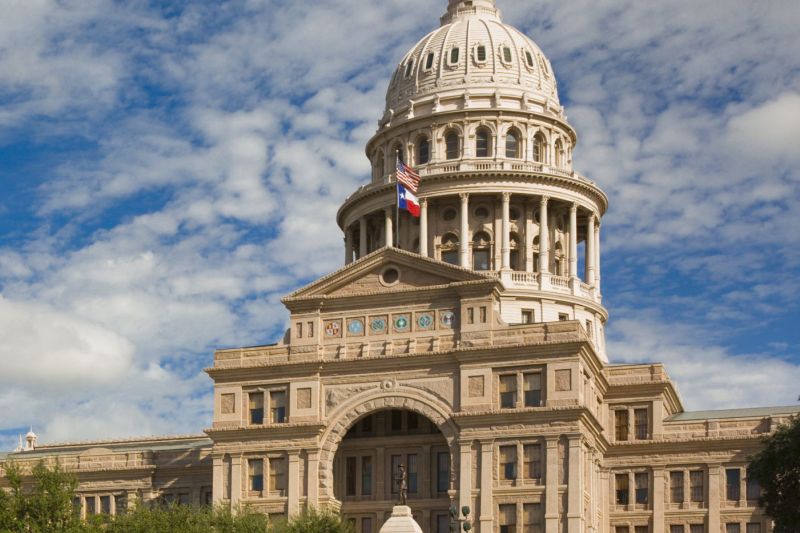Using Advocacy to Create Greater Community Impact

On Thursday, Feb. 15, leaders from across North Texas’ nonprofit sector joined United Way of Metropolitan Dallas for Advocacy for Greater Community Impact, a special webinar that explored the role of advocacy in improving access to education, income and health in our community.
2024 is a critical year for public policy in Texas, as we approach the November election and prepare for next year’s legislative session. United Way is encouraging every individual and community organization to speak up in support of policies and candidates that will benefit our region.
Our advocacy webinar explored key topics designed to empower community organizations to add advocacy to their strategies for the year, including:
- The various types of nonprofit organizations and what kind of advocacy and lobbying activities are permitted under the law
- How nonprofits across Texas can mobilize our collective advocacy and impact, especially at the state level
- Tips and strategies for developing an advocacy agenda
- How nonprofits can partner with lawmakers to advance policy for greater community impact
Hillary Evans, vice president of policy and advocacy at United Way of Metropolitan Dallas, opened the event by explaining why United Way is focused on and enthusiastic about advocacy—particularly during a big election year.
“Here at United Way, we believe and the power of unity to create lasting change,” she said. “As a social change organization entering our second century of impact, we are leading a movement to improve education, income and health—what we call the building blocks of opportunity—so all North Texans can thrive. One of the critical ways that we can create greater access to opportunity is through our advocacy efforts at the federal, state and local levels.”
The event featured a panel discussion with some of our community’s leading change agents, each of whom has extensive experience with the power of advocacy:
- Ashley Harris, director of public policy and advocacy, United Ways of Texas
- Vince Leibowitz, legislative director and fiscal analyst for the office of State Sen. Royce West
- Natalie Roetzel Ossenfort, program director for Bolder Advocacy at Alliance for Justice
Lindsey Hughes, finance counsel at Haynes and Boone and co-chair of the United Way of Metropolitan Dallas Advocacy Committee, served as moderator.
View a video for the full event below, or read on for highlights from the Q&A.
Lindsey Hughes: Natalie, could you go into detail on what kind of activities might be acceptable and how organizations can remain nonpartisan, especially when we’re in an important election year?
Natalie Roetzel Ossenfort: You are not allowed as a 501(c)(3) to support or oppose candidates for public office. This does include public offices that are not party specific. So for example, when people run for city council in Dallas, they’re not declaring what party they’re affiliated with—these are non-partisan offices. But because they are public elected offices, we should not suggest who people should vote for or against or what parties they should vote for or against. This also includes things like school boards. When we have school board elections, you don’t want to chime in as a 501(c)(3) in terms of who the best candidates are.
Obviously under these rules you can’t endorse a candidate. That would be a clear violation of the 501(c)(3) rules. But you can do things like nonpartisan voter engagement work—for example, if you want to get out the vote, educate voters about how to find their polling location or what type of ID they need to bring with them to the polls. That’s something that is going to be 501(c)(3) safe, but it has to be done in a non-partisan way. So it’s really this balancing act, and you’ve got to figure out what risk level you’re comfortable with as a 501(c)(3).
Hughes: Ashley, United Ways of Texas represents individual United Way organizations all across the state, including working with us in North Texas. Can you talk to us a little bit about ways your organization leverages collective advocacy?
Ashley Harris: Advocacy really is a pillar of United Way, as it’s a key component to making lasting change and communities. As a network of Texas United Ways, we really believe in the power of community voices in policy and advocacy. We believe that state leaders need to hear from local nonprofits and their partners, as you are uniquely positioned to speak up on behalf of your community. You’re doing this work every day, and we believe your voice is essential to policy discussions.
I think it’s important to remember that advocacy is a continuum that can also include lobbying. Where a lot of our United Ways focus their advocacy is on educating and creating awareness among legislators and other decision makers about particular issues that their communities are facing.
As an example, we host a Capitol Day every year where our United Ways bring their networks, partners, volunteers and donors together around critical issue areas to remind policy makers what’s most important to Texas communities. It’s an opportunity to highlight the power of our network and the power of community voice.
Hughes: We will now move on to chat with Vince, whose kind of got the opposite perspective working in a public office. Texas is unique, in that we have our legislative session every other year. Could you talk to us a little bit about the timeline in the legislative session and what to think about in terms of advocacy in an off-session year?
Vince Leibowitz: The first thing you would probably ask is who exactly am I advocating to? You’re advocating to more than one person at once: legislative staff, committee chairs, legislators themselves. And then you ask, where does the advocacy happen? Most of it’s going to happen in Austin, but some legislators do not maintain an office presence in Austin during the off years and their entire office is centered within their district. So you may find them within their district. The last question is how you reach the people, and I’m about to tell you the most important thing about that.
Please make appointments. Legislative staff, particularly during legislative session, sometimes take up to 15 meetings a day, dozens and dozens of phone calls on top of all of the actual duties that we’re doing on the floor of the ledge of the Senate with our boss or in committee meetings. So the best way to get staff’s attention is actually to make an appointment and not just to drop by. The ways to reach folks are by phone, by email and in person. I recommend you do in person after you have set things up by phone and email.
When do you start your advocacy in advance of the next legislative session? You always start the day after the legislative session ends. It doesn’t matter if the legislature rolls on into special sessions. The legislature has a two-year lifecycle with the interim and session, and you have a limited window during that time to prepare to accomplish your legislative goals.
I also encourage everyone on this timeline to start narrowing your focus to specific areas of advocacy. We have some organizations that will come and hand us a legislative agenda that has 400 items in it. No organization can handle working on 400 items. Make certain that you are realistic and narrow your advocacy to specific areas that actually match your organization’s mission. For example, if your organization is an animal welfare organization, you do not need to be advocating on things that are outside of animal welfare unless it affects animal welfare.
Add to Your Advocacy Toolbox
Interested in ramping up your advocacy efforts this year? Check out these resources for additional information on allowable advocacy activities, courtesy of the Alliance for Justice:
- Public Charities Can Lobby (Factsheet)
- Being a Player (Guide to IRS Lobbying Regulations for Advocacy Charities)
- The Rules of the Game (Guide to Election-Related Activities for 501(c)(3) Public Charities)
Advocate with Us
Whether you are part of a North Texas nonprofit or simply a community-minded resident, we invite you to advocate with the Live United network. When we speak up, united, we have the power to drive lasting change in our community.
Sign up for our Advocacy Alerts, and we’ll let you know how and when to contact your representatives to have the biggest impact possible.
Tags

Sign up for Advocacy Alerts
Join us as we speak up and speak out about how education, income and health policies impact our community and advocate to expand opportunities and drive systemic change.


